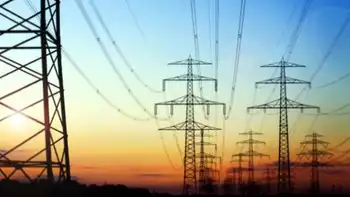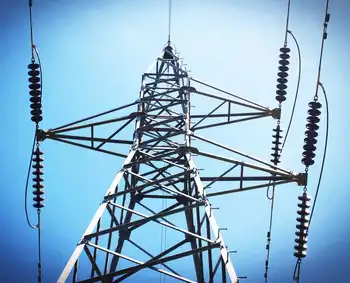Fight over clean energy could get dirty
But Attorney General Wayne Stenehjem is waiting to see if a realignment of the Minnesota Legislature – with both chambers soon to be controlled by Republicans – might solve the problem by repealing the offending laws.
The possibility of a legal fight between the two neighboring states has loomed since Minnesota passed its Next Generation energy legislation in 2007.
The legislative package establishes greenhouse gas reduction goals and requires Minnesota utilities to provide 25 percent of their electricity from renewable energy sources by 2025.
Also, starting in 2012, Minnesota utilities must consider the possible future cost of carbon when planning their future power generation sources. The Minnesota Public Utilities Commission has set a future cost range of $9 to $34 per ton of carbon dioxide, a greenhouse gas linked to climate change.
“That’s what I’d like them to repeal,” Stenehjem said. He said the provision was almost repealed last year, especially in the Minnesota House, where it died with a tie vote.
Rep. Morrie Lanning, R-Moorhead, said he expects the issue will be revisited this year, and agreed the swing to Republican dominance in the Legislature could tip the scale in favor of repeal.
“There’s still very strong bipartisan support for renewable energy,” Lanning said, “but there’s increasing concern about the impact of renewable legislation on the cost of energy.”
To prepare for a possible court battle, the 2009 North Dakota Legislature set aside $500,000 to pay legal bills. About $100,000 has been spent to date, mainly to pay private attorneys for legal research.
Stenehjem argues that MinnesotaÂ’s restrictive laws on carbon emissions violate the U.S. ConstitutionÂ’s commerce clause, which bars states from interfering in other statesÂ’ commerce.
Minnesota is free to impose whatever restrictions it wishes on its own power plants but runs afoul of the commerce clause when extending those restrictions on other states, Stenehjem said.
North DakotaÂ’s lignite and coal-fired power industries spend more than $1 billion a year, with total economic benefits adding up to $2.9 billion, according to the Lignite Energy Council.
Last summer, Stenehjem was invited to address members of the Minnesota Rural Electric Association about his concerns about the laws and North DakotaÂ’s threatened lawsuit.
“It was a receptive audience,” said Mark Glaess, the association’s general manager. “We are not at all enamored with the legislation that emanated in 2007.”
Many rural electric cooperatives have been losing money on surplus wind energy they sell on the wholesale market, Glaess said.
Wholesale power prices have plunged because the slow economy has reduced the demand for electricity, especially from industrial customers.
The slumping prices have hit when many rural electric cooperatives have added wind to their energy mix to meet MinnesotaÂ’s renewable energy standard, Glaess said.
“Three years ago, things were quite different,” he added, referring to the economy and political landscape when Minnesota passed its Next Generation Act. “Wind now makes horrible sense.”
But environmental advocates argue that carbon restrictions still are likely, although so far, Congress has not imposed them, and say a lawsuit by North Dakota would be misguided.
Brad Crabtree, policy director of the Great Plains Institute, is an advocate of both renewable energy and so-called “clean coal” technology that captures and stores carbon dioxide emitted from power plant smokestacks.
“I think suing your best customers, your most important customers, from a business standpoint is a terrible idea,” he said, noting that Minnesota is North Dakota’s largest electricity market.
Actually, Crabtree said, imposing a cost on carbon would provide the economic incentives making it feasible to build a power plant capable of capturing and storing carbon.
Joe Richardson, a Fargo advocate of wind energy, said North DakotaÂ’s willingness to sue on behalf of the coal industry suggests it favors coal over wind.
“We’re sort of hurting or we’re negatively impacting our wind prospects in favor of our coal prospects,” he said.
Stenehjem disagreed, and said North Dakota intervened with Minnesota regulators in the 1990s to keep it from imposing costs on North Dakota coal-fired electricity for mercury pollution.
Also, Stenehjem said, development of power transmission lines needed for coal plants would help deliver electricity generated by wind farms, so the industries often complement each other.
Any restrictions on carbon should come from the federal level, rather than a patchwork of state restrictions that would exacerbate the regulatory uncertainty already hampering the power industry, Stenehjem said.
“We’ll wait and see what they do,” Stenehjem said, referring to Minnesota’s upcoming legislative session. He’ll try to open doors at the Minnesota statehouse before taking any steps in a courthouse.
Related News

Alberta Advances Electricity Plans with Rate of Last Resort
ALBERTA - The Alberta government has announced significant strides in its electricity market reforms, unveiling a new plan that aims to enhance energy reliability and affordability for consumers. This initiative, highlighted by the introduction of a "rate of last resort," is a critical response to ongoing challenges in the province's electricity sector, particularly following recent market volatility and increasing consumer concerns about rising energy costs.
Understanding the Rate of Last Resort
The "rate of last resort" (RLR) is designed to ensure that all Albertans have access to affordable electricity, even when they face challenges securing a competitive rate in the…





